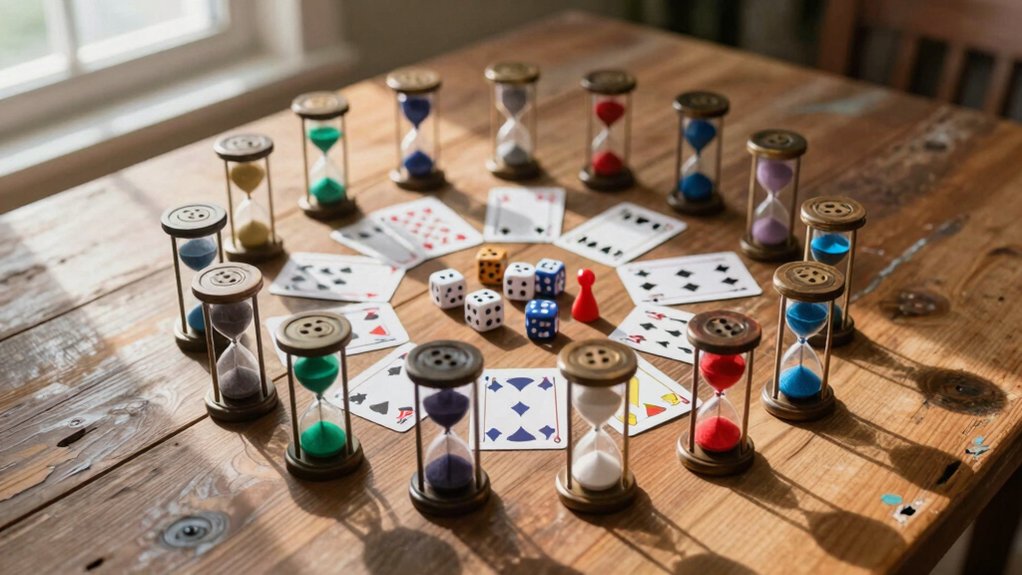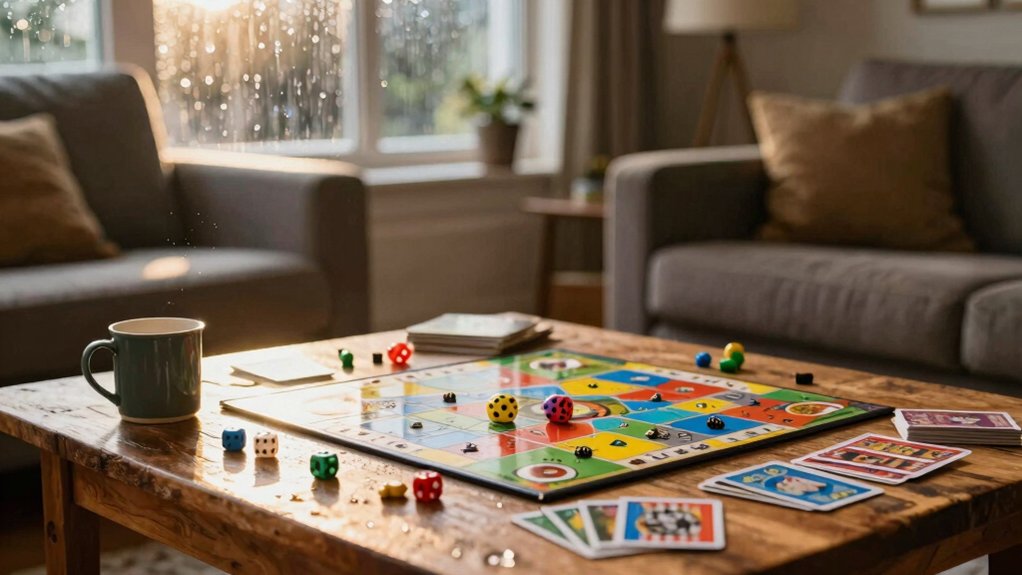Humans face difficult situations and criteria every now and then. The skill to act calmly without overwhelming under any difficult situation be it immediate or pre-noticed is known as distress tolerance. Actually, DT (Distress Tolerance) is a skill that is essential for our survival.

Distress tolerance can be enhanced in everyone through some easy group activities. Dialectical Behaviors Therapy (DBT) has been researched and found many efficient measures to increase DT in humans.
Here is an article that I have written about 30 Team Building Activities For International Groups In 2024.
What Are The Three Types of Distress?
The three types of distress are
- Acute stress
- Episodic acute stress
- Chronic stress
Acute Stress:
The reaction of our body and mind to any sudden challenge is called acute stress. We face acute stress commonly in our daily life. Like a close call to an accident while driving or any pending work while the deadline is quite near. Acute stress is considered as short time stress from which our body recovers very soon.
Sometimes we receive this feeling from things we enjoy. For example, any outstanding achievement that we worked hard for or a roller coaster ride.
Episodic Acute Stress:
The experience of acute stress on a frequent basis is known as episodic acute stress. Repeatedly tight scheduled work, too much pending work for a short deadline, and immense loaded work pressure for a long period can result in this type of stress.
Basically, it’s a feeling of falling into a crisis before getting out of the previous one. Our bodies and mind don’t get the time to relax in these conditions.
Chronic Stress:
Chronic stress refers to stress which lasts for a long time and affects quite a long time. This type of stress is the most harmful one. This can be the result of bad parenting for a long time, constant quarrels with a life partner, or living in poverty for a very long time.
This type of stress takes a bit longer to cure. Sometimes it feels like a never-ending one.
What Is Distress Tolerance Skill?

The ability to overcome stress and emotional situations easily is called the Distress tolerance skill. Some factors should be kept in mind while looking for this skill, like the depth of emotion or intensity of stress, recovery time, etc.
This is a skill of accepting hard realities without overwhelming them. This skill also refers to how fast a person becomes normal after a mental trauma or severe stress.
Every person must grow this kind of skill so that our life becomes easy. To have complete logical control of the mind unless taking any decision emotionally can be done only by achieving this skill.
18 Distress Tolerance Group Activities:

According to much research by DBT (Dialectical behavior therapy), it was declared that there are many group activities that help to grow Distress tolerance skills immensely. Some impactful group activities are described below.
- Imagery:
Imagery is an act of imagining. This can be done individually or in groups. When it’s done in a group, one person is elected to lead the activities. The person leading the act will command everyone to relax and close their eyes. Then they will imagine a similar situation.
Like, if the leader leads them to a safe imagination, everyone will imagine a safe place. Or they can imagine anything like an unstoppable train, a shining sky with autumn clouds, an angel or a fairy godmother, etc. This act eases our mind and diverts it from other thoughts of the world for the time being.
- Relaxation:
A calm and relaxed body and mind is a prime requirement of distress tolerance. Basically, a group together can hire any psychologist who is an expert in calming the mind. This act can be done both virtually and physically. In the physical one, everyone will attend the psychology together and follow the instructions for relaxation.
In case of virtual relaxation, everyone will be connected over calls through media like Google meet, zoom, line, etc, and complete the task.
- Prayer:
Prayer is a satisfying act that reaches the deep of our hearts and enriches our minds with positivity. This is an act that is quite effective for distress tolerance groups. Like the groups can visit churches or mosques or any sacred place together and seek shelter from God. This act can only be performed by believers.
- Meaning:
Distress tolerance group members can do this activity together by selecting a few criteria they want to undergo. In this session, various questions are asked and answers are received which diverts our minds and helps our tolerance skills to enhance.
This act includes questions like identifying 10 things you are grateful for, sharing the happiest moment of your life, finding the silver lining, etc.
This is an excellent activity that helps boost distress tolerance skills.
- Mental Vacation:
A mental vacation is an act that leads our mind toward a stress-less flow. This is a practice of leaving office work in the office, quarreling at home, watching previous vacation videos or photographs, etc.
This activity feels awesome when done in groups. Because everyone can share their earlier vacation incidents with each other which will enhance the group morale. Also, a group member can inspire the other one by sharing his or her experience of mental vacation.
- Encouragement:
This is an effective group activity for distress tolerance groups. In this act, a List is made which contains everyone’s encouraging factors. So the group selects one person every week and tries to complete all the factors that will encourage that selected person within a week. The next week someone else receives the privilege and the circle continues.
This act is highly effective to release stress from distress tolerance groups. This should be practiced.
- One thing at a time:
Sometimes our stress and anxiety hit our minds so badly that we cannot focus on our daily tasks. Just like getting lost while doing the dishes or watching TV. This activity is the practice of growing complete control over the concentration of the mind.
Our minds will focus only on the task that we will be doing then. The groupmates can give morale to each other by practicing this act. This practice will help us continue our general life even when we are stressed.
- Exercise:
When we have stressed, our muscles become clumsy. This creates a lack of oxygen in our body which often affects our mind and makes the stress severe. Also, a stressed body will feel zero encouragement for exercise.
So, doing exercise in a group can be a solution. Not only will it create distress tolerance enhancement but also it will give us a healthier and stronger life.
- Yoga:
Yoga is an act of mental exercise. As our body needs exercise for being fit, our mind also needs exercise to be sound. A group of people who want to grow distress tolerance skills can hire any yoga teacher who will teach them either physically or virtually.
Yoga brings mental stability, keeps our minds refreshed and energetic, and spreads positivity.
- Temperature Treatment:
Often people face problems with their anger management. Anger control is an important part of distress tolerance skills. Temperature treatment works very efficiently in anger control. It can be done in groups and individually too.
When we become angry, our temperature rises. It causes temperature imbalance in our body which causes severe stress problems. Being in cool places like air-conditioned rooms or splashing cold water on our faces or taking a cool bath is a very good solution to anger issues.
- Icing:
Icing is a very good treatment for stress relief. A few cubes of ice are taken in a container and the face is dipped into it for 2-3 minutes (when done individually).
In the case of group icing acts, a group can hire small pools or jacuzzi for a few hours and put ice cubes into the water. Then they can test their whole body in the water. This method is way more effective to create distress tolerance than the previous one.
- Paired Muscles Relaxing:
The muscles which are present in pairs in our body are known as paired muscles. For example, biceps, triceps, thigh muscles, jaw muscles, etc. A distress tolerance group can hire a trainer to train them for relaxing pair muscles, which will be efficient and cost-effective.
The general idea of pair muscle relaxation is when any muscle is stretched and then released after a few moments, it becomes more relaxed than before. And any relaxed muscles demand less oxygen than stressed ones.
- Picnics:
Picnics can be a solution to the distress tolerance skill. Picnics make our minds refreshed and energize our minds for upcoming challenges. Any distress tolerance group can arrange picnics and energize themselves mentally, so they can handle upcoming stress quite easily.
- Mindfulness:
Mindfulness is an act of practice that includes the enhancement of the mind by keeping it sound and happy. Generally, happiness increases as we share our joy with people. So a group can practice mindfulness together. Mindfulness helps us to concentrate on our daily necessities. Group practice of mindfulness is more effective compared to other ways of practice.
- Massage:
Massage is a very good solution to help distressed groups of people. There are many Spa and massage centers available everywhere. But it might be quite expensive. So the solution is to watch a few tutorials for a good massage and create a group. Then by turns, everyone will get and give massages.
- Hiking:
Visiting mountains and various naturally eye-catching places can mesmerize our hearts to the fullest. This removes stress and gives a morale boost to accept reality with a sound mind. Group hiking is one of the best ways of mental recreation and well-being.
- Steam-Bath:
A steam bath is a soothing solution for physical and mental stress. Distress tolerance groups can perform steam baths in various gyms and spas. Taking steam baths in a group will be cost-effective and more enjoyable at the same time.
- Watching Arts:
Watching art can bring mental peace. These are soothing for eyesight and joyful. Visiting art galleries and museums together in a group can help us discuss art and cultural practices. This always calms the mind and releases stress.
10 Distress Tolerance Creative Activities That You Can Do In Group:

Art activities refresh our minds. Creating, watching, and appreciating artistic materials cherish our minds with happiness. Being happy, lively, and mentally fresh is very essential to enhance distress tolerance.
- Band Music:
Band music requires a group of musicians experts in various musical instruments to create artistic music. Music is the sole stress relief for humans.
- Group Dance:
A form of art generally performed individually by experts but in groups with friends and family for fun purposes. Dancing makes our body and mind lively. Group dance requires no learning, experience, or expenses. Just music and a few friends. Start grooving with the beat to get distressed.
- Copy the art:
This is a little competitive game in which art is placed in front of a group. And then everyone is given a canvas and all other necessities. The task is to make a copy of that art within the given time. The person to make the closest version of the art within the time limit wins.
- Candle making:
Making various designed candles is an art. A group of distressed people can make artistic candles together by forming small groups of 4-5 people each. The team with the best-designed candle within the time limit wins.
- Soap-making art:
Soap-making is an easy homemade process. Basically, various tutorials are available on soap-making art on YouTube. Any distressed group can learn this soothing artwork and practice together with a competitive mind to make the best soap.
- Card making:
Cardmaking is a craft. Distress-tolerance groups can make beautiful cards and gifts for each other. Making beautiful cards and receiving appreciation makes our minds happy and lively.
- Cooking together:
Cooking is an art. Cooking requires utmost dedication and concentration. But when cooking in a group is done, it becomes a fun activity. Cooking good food that mesmerizes others brings joy to the chef which is helpful in reducing stress.
- Building sand castles:
Sand castles are generally built on beaches or places near rivers where there is an abundance of sand. A beautiful sand castle needs artistic skills. A group of distressed tolerance-building groups can build sand castles together. Or they can divide them into sub-groups and make a competition of building the best castle.
- Writing:
Writing is an art. There are various forms of writing such as poems, novels, short stories, etc. A distressed group can share their thoughts and emotions by writing and exchanging them with others. This helps to express own stress and also understand other people’s sadness.
- Making sculptures:
Making sculptures with wax, stones, soil, etc is a difficult art. It requires precise skills and tons of concentration. This, doing these sorts of group work can divert minds from stress and depression and inculcate skills and patience.
Frequently Asked Questions [FAQs]
Is Stress Tolerance A Skill?
Definitely, stress tolerance is an essential skill for any job. It is the ability to manage any stressful situation quite easily without being nervous.
Is Mindfulness A Distress Tolerance?
Mindfulness is an essential component to build distress tolerance. The ability to show a behavior of accepting tough times easily by training our mind is mindfulness.
What Is The Goal Of Distress Tolerance In DBT?
The goal of distress tolerance in DBT ( Dialectical Behaviour Therapy) is the survival of a person from any sudden or obviously worse situation easily. That means, its aim is to train our mind to be calm and accept any sort of reality without overwhelming it.
Verdict
Distress tolerance activities are very necessary for any job sector. Not only in job sectors, but also in our daily life it is quite necessary for sound survival. It can be practiced alone and in groups as well.
Practicing in groups is quite better, efficient and fun than practicing alone from my point of view.




Leave a Reply